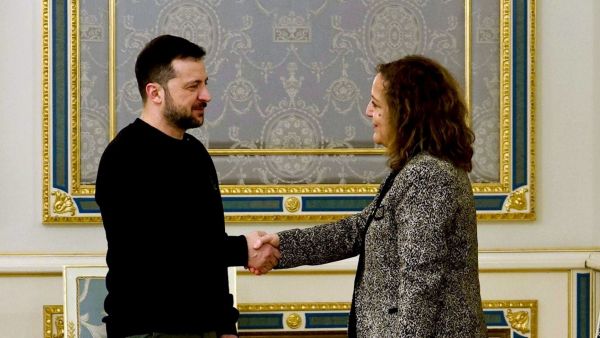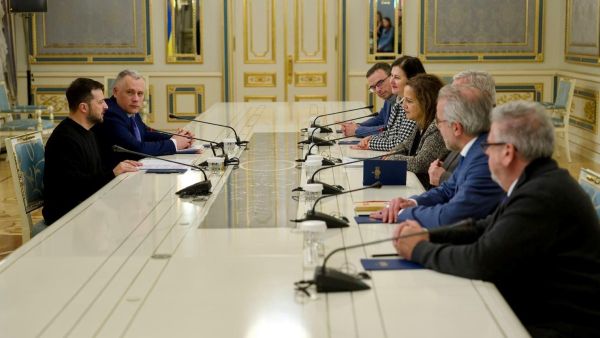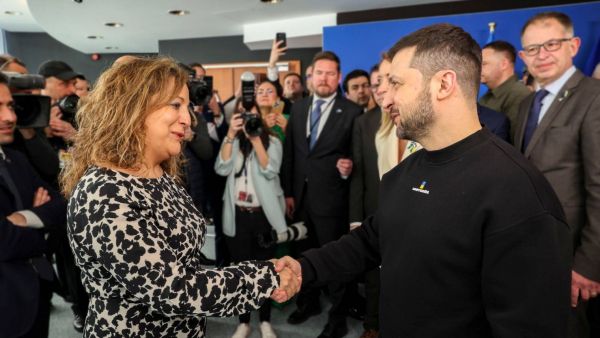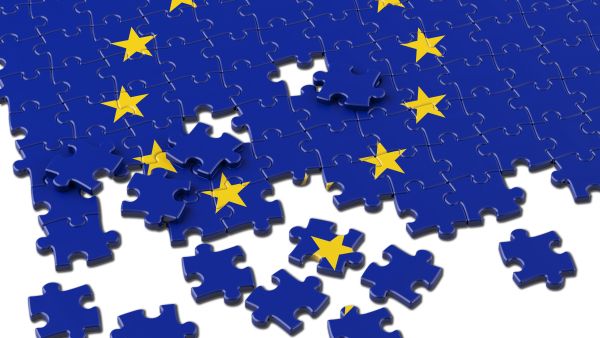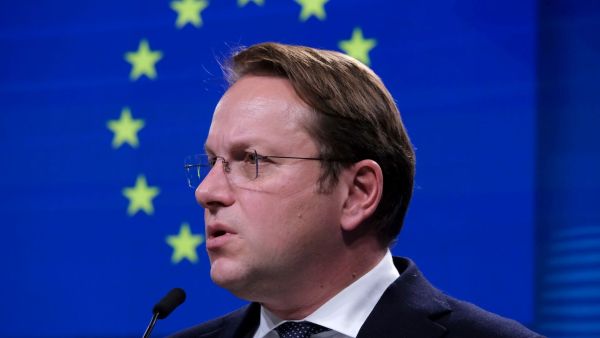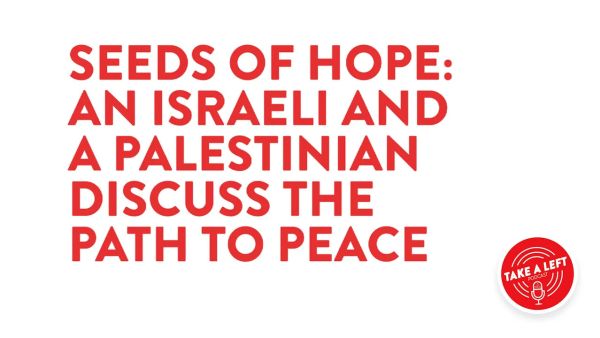The sooner we can free ourselves from the foolish and false propaganda propagated by populists such as Le Pen, Salvini and Orbán, the sooner we can guarantee a future of peace and stability for our children.
If Europe does not eradicate the causes that drive so many migrants into the hands of traffickers, then very soon, it will be faced with uncontrolled migratory pressure, writes Gianni Pittella.
Gianni Pittella is the Socialists & Democrats (S&D) chief in the European Parliament. He wrote this op-ed ahead of a visit together with fellow Italian Partido Democrático MEP Cécile Kyenge in Nigeria.
Pittella will meet with the Nigerian government and visit the Yola camp, an area under siege from militant Islamist group Boko Haram, that is home to thousands of displaced persons, particularly women and children fleeing violence and persecution, as well as a famine that is in danger of leaving millions of deaths in its wake.
A glance at the map of Africa is also a glance into the future of Europe. The future of us all. Why? The figures will tell you why. Approximately 962 million people live in Sub-Saharan Africa today. In less than 20 years, this figure will double to over 1,565 billion. Even more interestingly, the population aged between 20 and 39, i.e. young people of working age, will jump from 278 million to 481 million. We don’t need a crystal ball to guess where tomorrow’s young Africans will turn their gaze without a true perspective for a better life or decent work in Africa, repressed by authoritarian regimes, widespread poverty and terrorism: to Europe.
Is this just media fear-mongering? No, it’s simply a mathematical reality. Whether you like it or not, Europe and Italy will be called upon to deal with Africa. Or will it soon be Africa dealing with us? Faced with these figures, promoting walls as a solution, fully blocking arrivals on our coasts or the sealing of borders are foolish proposals. Stabilising Libya is indeed of fundamental importance. But only to mitigate the issue, not resolve the problem.
What Europe needs is a medium to a long-term strategy that will treat the African continent as a true partner. The counterargument would be that Europe is already the main donor to Africa. That is true. But that is precisely the point – we need to move away from our role as a donor and move towards a role of being a proponent of policies. We would need to radically change our approach and implement an important EU development plan for the African continent. No longer merely about money, but rather focusing on investment. What we need is a vision.
In the Sub-Saharan area, in the extremely delicate and strategic region of the Sahel, Nigeria is the number one partner for Europe. Nigeria is a regional power in economic, political and demographic terms. In 2050, Nigeria’s population will rise to almost 300 million, equalling the population of the United States. Nigeria is also one of the most stable countries from a political point of view, having passed the test of the presidential elections with flying colours, held in a democratic and largely peaceful context. It is an economic power due to the fact that its main source of income comes from oil extraction, though it currently faces difficulties due to the crude oil crisis.
But Nigeria is also the country that has been most affected by Islamic terrorism, with the terrorist organisation Boko Haram claiming hundreds of victims each year and unleashing violent acts. Finally, Nigeria is one of the main ‘exporters’ of migrants, bargaining chips for the highly powerful criminal human trafficking organisations. The women, in particular, are exploited by the thriving European prostitution market. In 2017, to give a few more figures, 70% of Nigerian women who arrived in Italy – approx. 11,000 people – were victims of trafficking in sex slaves. It is there, in the Sahel region, where we need to act if we want to truly address these challenges and not just create propaganda.
Europe, thanks to the major turnaround brought about by Federica Mogherini, has finally changed its approach, implementing instruments for investment, democratic support and capacity building such as the Trust Fund, Migration Compact and the European External Investment Plan. For the first time, there is an attempt to invest in the future of the continent using a strategy of partnership, going beyond the historical backwardness of a Europe often divided by the neo- or old-colonialist mould of the individual member states of the EU.
These are important steps but, quite honestly, are still largely insufficient when bearing in mind the fact that the main instrument, the Trust Find, has made available 1.8 billion euros for 23 countries over a period of 5 years compared to the 6 billion over two years promised to Turkey to manage migratory flows. Something is still not quite right. This is not the way in which we will be able to fight human traffickers who fill the coffers of criminal organisations with their business of trafficking of ‘slaves’. This is a chain of interests that binds together African and European Mafia bosses and is something upon which Europe must focus greater attention.
I will speak to the Nigerian government to push for the completion of the agreement on returns from Europe. Our commitment is also focused on the opening of legal and safe channels for migrants. But the focal point remains with Brussels: if we don’t eradicate the causes that drive so many youngsters, men, and women to place their life in the hands of traffickers of death and unscrupulous smugglers, then very soon, within a generation, Old Europe will have to deal with migratory pressure that this time will be truly uncontrolled and uncontrollable.
Education, development, investments, the fight against terrorism and democratic stability: this is the recipe to ensure a future for Africa and Europe.
This is not about philanthropy. This is about an extremely rational calculation of interests. And our interests are exactly in line with those of Africa. The sooner we can free ourselves from the foolish and false propaganda propagated by populists such as Le Pen, Salvini and Orbán, the sooner we can guarantee a future of peace and stability for our children, both European and African.
DISCLAIMER: All opinions in this column reflect the views of the author(s), not of EURACTIV.com PLC.
http://www.euractiv.com/section/development-policy/opinion/europe-needs-a-strategy-that-will-treat-africa-as-a-true-partner/
Powiązane treści
Dowiedz się więcej

